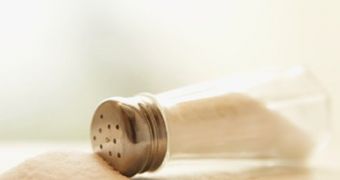"Salt is bad for your heart", is among the longest-lived preconceptions of modern times. Many of us grew up with it and always thought that a high salt intake would increase our chances of suffering from heart disease later in life. The main argument for this was that a higher sodium level would cause increased blood pressure - which is, of course, bad news for everyone.
Recent studies, however, tell us that things may not be so clearly cut out. Of course, this does not mean that we should all start eating salty chips and popcorn for breakfast, lunch and dinner - but that salt consumption may not be the "villain" we all thought it to be.
"No one should run out and buy a salt shaker to try to improve their cardiovascular health. But we think it's reasonable to say that different people have different needs", explains Dr. Hillel W. Cohen, who conducted the study and found that, surprisingly, people who eat less salt tend to suffer from a high rate of death from heart disease.
In fact, out of the 8,700 people whose long-term diets and overall state of health were monitored, the 25% who ate the least salt were found to be 80% more likely to die of heart conditions than the 25% who ate the most salt.
"Our findings suggest that one cannot simply assume, without evidence, that lower salt diets can't hurt", said Cohen. He doesn't claim that a higher salt consumption is actually good for our health, but rather that for some of us it may be better than we were allowed to believe.
"For most people, especially those whose blood pressure is normal, why are you telling them they shouldn't have salt?", he asks. As always, moderation is the key - but we may have to grow used to the idea that salt is not the heart-harming villain we always thought it to be.

 14 DAY TRIAL //
14 DAY TRIAL //